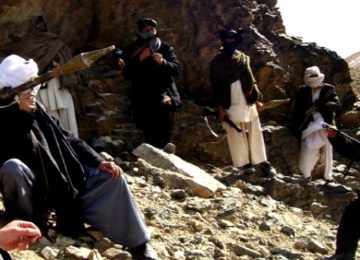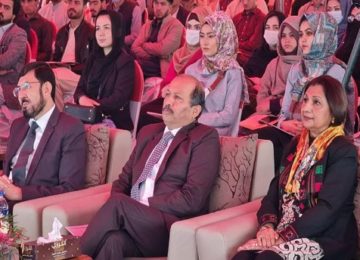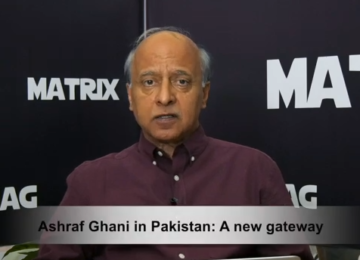The Taliban have skillfully surprised the Afghan government and NATO’s military commanders in Afghanistan by overrunning the city of Ghazni, a strategic population center on the main highway linking Kabul to the west and southwest of the country. This surprise attack, while Kabul and Washington were distracted by the prospect of another ceasefire for the Eid al-Adha holidays next Monday, amounted to a mini Tet Offensive by the Taliban.
According to media reports, the Taliban have destroyed all major government buildings inside the city of Ghazni and inflicted unprecedented casualties on government security forces. In addition, they have conducted military operations against vulnerable government outposts in a number of other provinces, which revealed the government’s paralysis in the face of major Taliban attacks.
Further, the Taliban have been able to contradict Washington’s narrative that the outcome of President Donald Trump’s South Asia Strategy will force the insurgents into political negotiations with Kabul. In addition, they have been able to break the military stalemate in their favor by making significant strides against government forces in the past several months.
In fact after the city of Farah, Ghazni is the second major population center to fall into the hands of the Taliban in less than three months, whose objective is not to control but overrun major population centers as a show of their strength. Now, we all wonder which city will be next.
The Afghan government has lost the initiative and the momentum is now with the Taliban. In every single Taliban attack, government forces withdraw from the battlefield, and the leadership in Kabul is desperately looking for air support from the North Atlantic Treaty Organization. In addition, Kabul has relied heavily on the elite Special Forces to rescue lost positions, which has already reduced the efficacy of this elite force. Recently we have seen big losses among the Afghan commando forces because the Taliban have been able to adapt to their tactics and overcome their technical superiority.
We Afghans who have known the Taliban since 1994 understand that they have not gained any particular military strength or had access to any game-changer weapons such as sophisticated anti-aircraft missiles. Instead, their strength is due to a dysfunctional government in Kabul, a government run by an elite that has nothing to lose. In the best-case scenario, they will continue ruling and reaping the benefits of a stable Afghanistan, or in the worst case, they will skip the country and live a luxury life in their second residences, mainly in Western countries.
In addition, an uncontrolled military budget of close to US$6 billion in a poor country like Afghanistan has been one of the reasons behind growing corruption and nepotism in the security sector, which has provoked intense competition among senior military and civilian officials for personal enrichment. Many top Afghan generals are overweight and could not walk even a few kilometers in the difficult mountainous Afghan terrain, and the dust of the battlefield has never fallen on their shoulders. Meanwhile, the civilian leadership in this vital sector are oblivious to war, and their closest experience of any battlefield is perhaps Hollywood movies.
When the fate of proud and courageous warriors who are falling by the dozens in major battlefields on a daily basis is the hands of such leadership, then we should not expect any major breakthrough. The heavy losses of young Afghans because of the mistakes of a few at the top political and military leadership is intolerable for their families and unacceptable for the Afghan people. Just in the past few days, more than 200 families have been agonized by the loss of their loved ones, and this is the most conservative estimate – in reality the number could be doubled or even tripled.
The fact is the Taliban will continue their brutal attacks against government forces until they extract maximum advantages in the peace negotiations from the United States. Meanwhile, President Ashraf Ghani, who is worried about his legacy, has become oblivious to the sad realities on the ground. He is worried more about his image within the international community as a US citizen than about his standing in his own country.
His fake narrative of empowering the young generation and bringing good governance no longer impresses us Afghans or our international partners, and he has shown that the killing of young Afghans is just a number to him, because while many young soldiers were falling in defense of Ghazni, he was celebrating Youth Day in the presidential palace with big fanfare.
We fear that a bigger coordinated attack by the Taliban in a number of cities could lead to the collapse of the government in Kabul and to unprecedented bloodshed throughout the country.
This article originally appeared in Asia Times on August 13, 2018. Original link.
Disclaimer: Views expressed on this blog are not necessarily endorsed or supported by the Center for Research and Security Studies, Islamabad.








